
How much does a pool cost per month in electricity? Pools use more energy than most home appliances, but you can invest in energy-efficient equipment to reduce costs.
Round out your pool design with a photo-worthy finish


The right pool finish goes far beyond appearance. It can determine how long your pool surface lasts as well as how the pool floor feels against bare feet. Whether you're debating pool finishes for your new pool or considering the cost of a pool remodel, comparing everything from plaster to glass tile is one of the most fun choices to make in the design process. The most common types of pool finishes include epoxy paint, plaster, pebble, glass beading, polished aggregate, and tile.
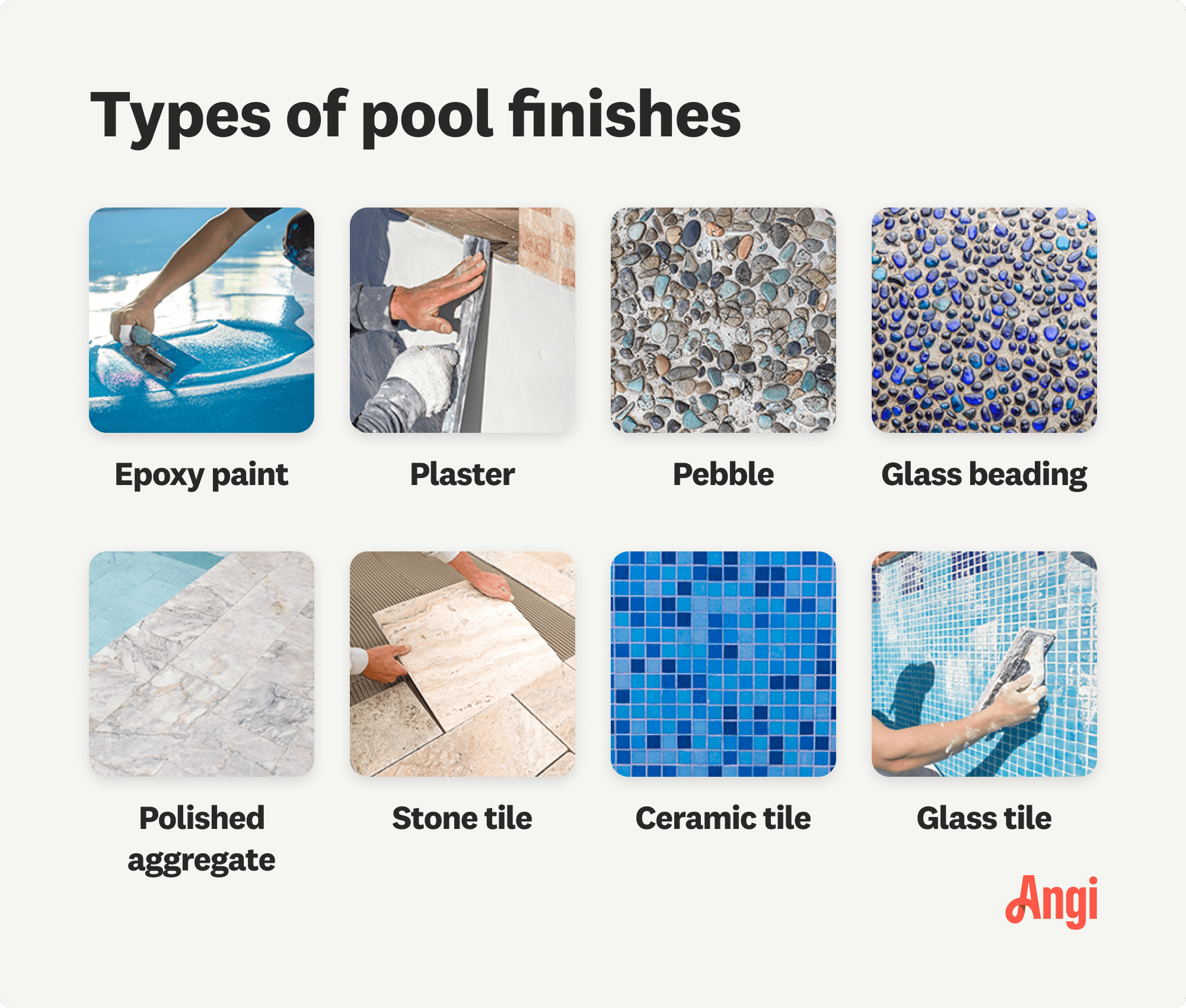
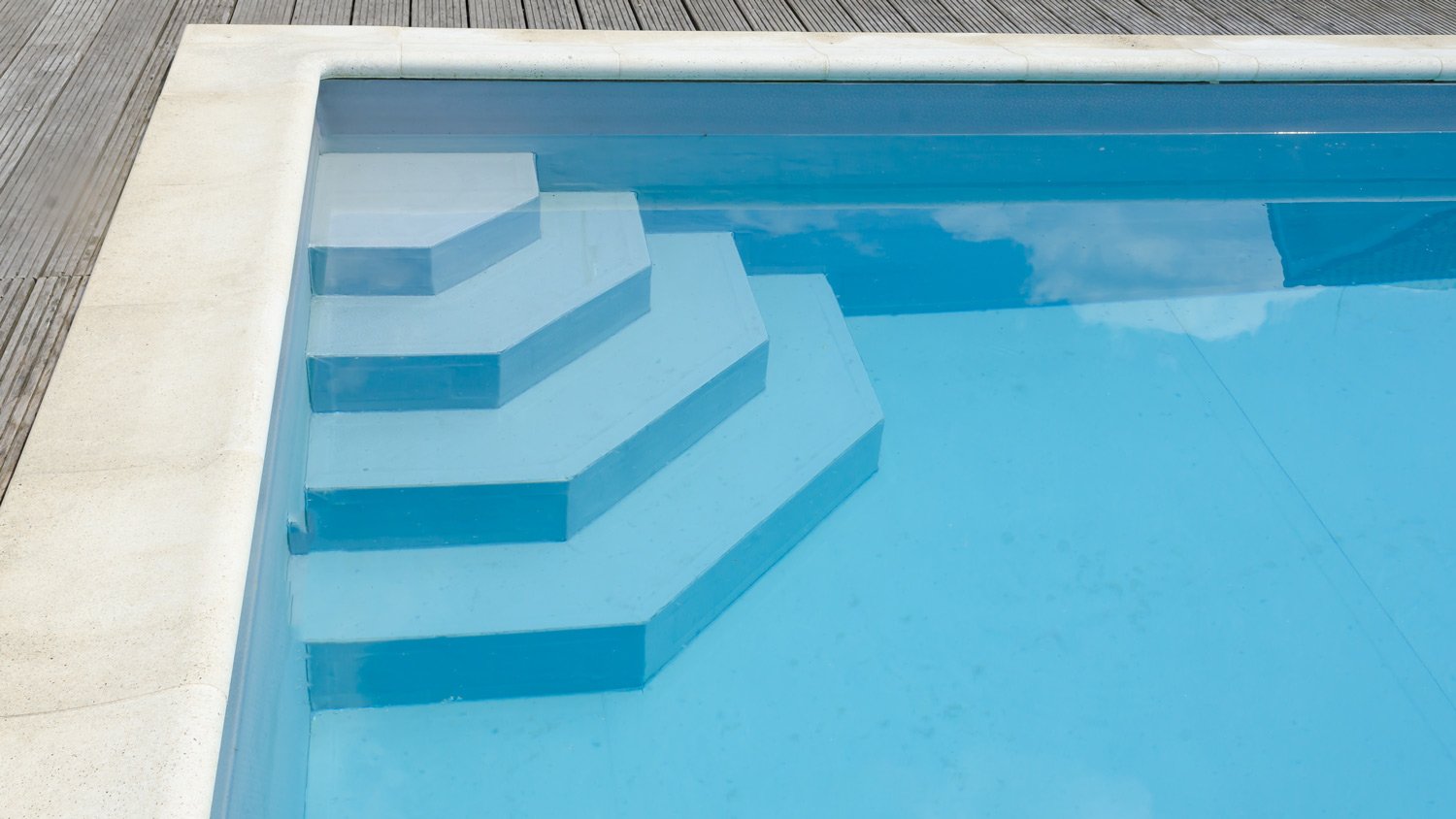
Let's dive in with one of the most cost-friendly pool finishes: epoxy paint. Coming in at just $1 per square foot, this finish is both affordable and DIY-friendly. Pool paint comes in a range of colors and is sold for concrete, gunite, and fiberglass pools.
All this being said, pool paint only lasts for up to five years on average. Painting a pool and allowing it to cure also takes a long time and doesn't hold up well in the sun.
| Pros | Cons |
|---|---|
| Low cost | Short lifespan |
| Range of colors | Not UV-resistant |
| DIY-friendly | Can be slippery |
Best for: Small repairs and DIY pool resurfacing
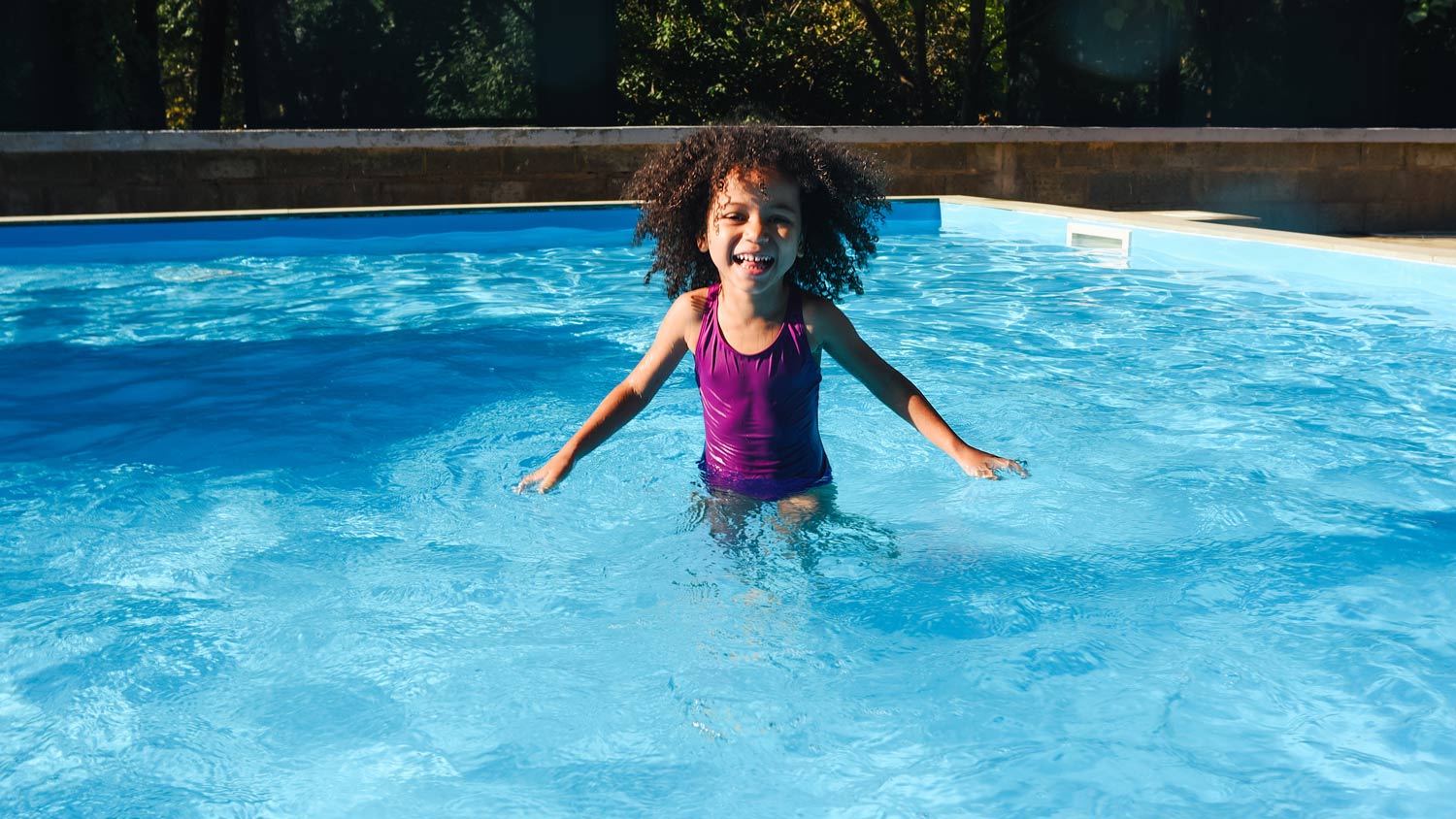
Plaster takes the prize as the most common type of pool finish. This finish costs between $5 and $6 per square foot on average and is quick and easy to apply while still giving a pool a smooth, classic look. Most pool plaster comes in a deep blue color to enhance the look of the water, though you'll find it in other colors as well.
Plaster can cause issues in the long run. Concrete can affect the chemical balance in your pool water, particularly when it mixes with gunite. Pool owners will also need to repair visible breakage in the first several years, adding to the overall pool repair costs. Depending on the type of plaster, plaster pools last up to 10 years.
| Pros | Cons |
|---|---|
| Budget-friendly | Visible breakage |
| Range of colors | Lasts up to 10 years |
| Discourages slipping | White plaster can stain |
Best for: Large classic pool designs seeking a budget-friendly option
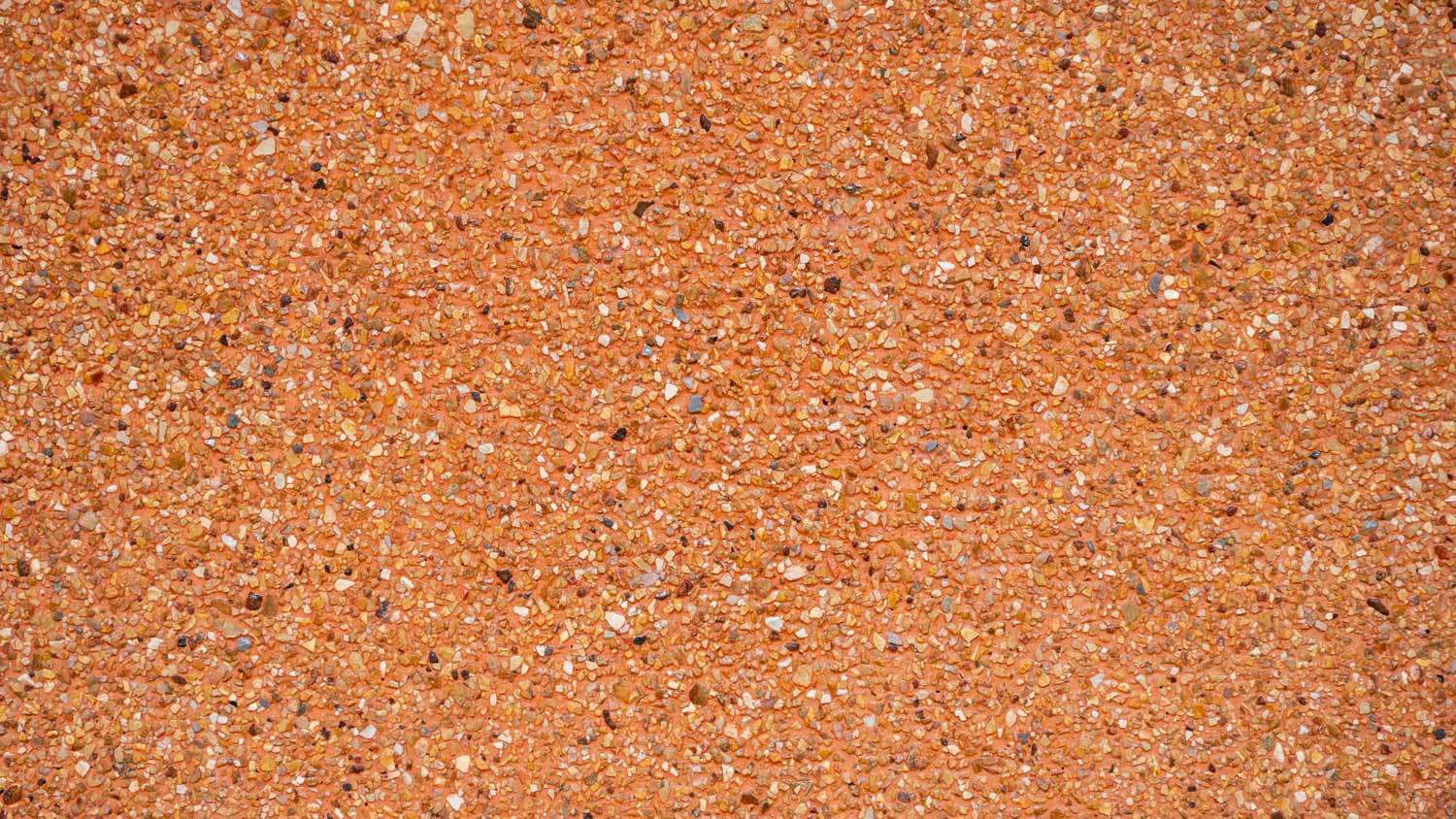
Pool finishes include a range of aggregate options, and pebbles are one of the most popular. Typically an exposed aggregate—meaning the aggregate is not smoothed to a flat finish—pebble pool finishes feature rounded river pebbles for about $10 per square foot. The combination of pebbles is highly durable and can last over 20 years when well maintained.
One of the top perks of pebble pool finishes is that it shows off natural hues and a look that blends well with surrounding landscapes and pool coping. Designers can place pebble aggregate in many types of pools, including spools, or spa-inspired pools.
| Pros | Cons |
|---|---|
| Natural appearance | Higher cost |
| Highly durable | Not DIY-friendly |
| Prevents slipping | Hard to repair |
Best for: Natural-style pools or pools that require a nonslip surface
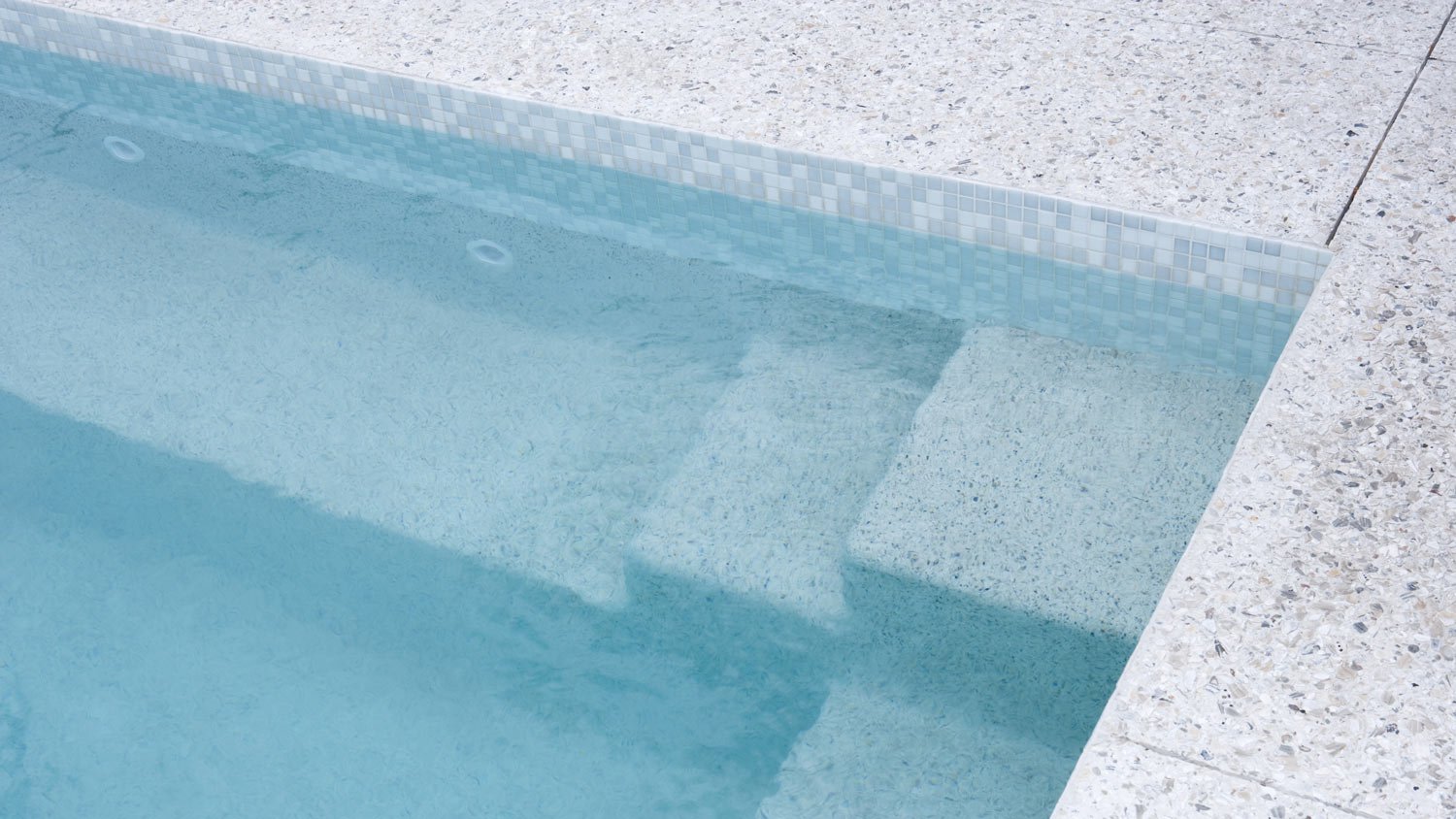
Another favorite exposed aggregate is a glass beading pool aggregate. Offering a pool a high-end appearance without giving up the strength of other aggregates, glass beads cost between $5 and $7 per square foot.
Glass has a range of perks underwater. It is highly durable and can last at least 10 years or more. It is also non-porous and UV-resistant, both ideal for high-use pools outdoors. Perhaps homeowners are most drawn to glass beads due to their reflective properties that can give a pool a little extra sparkle.
| Pros | Cons |
|---|---|
| Smooth to the touch | Higher cost |
| Stylish design | Hard to install |
| Highly durable | Can be slippery |
Best for: Achieving a stylish, glistening look
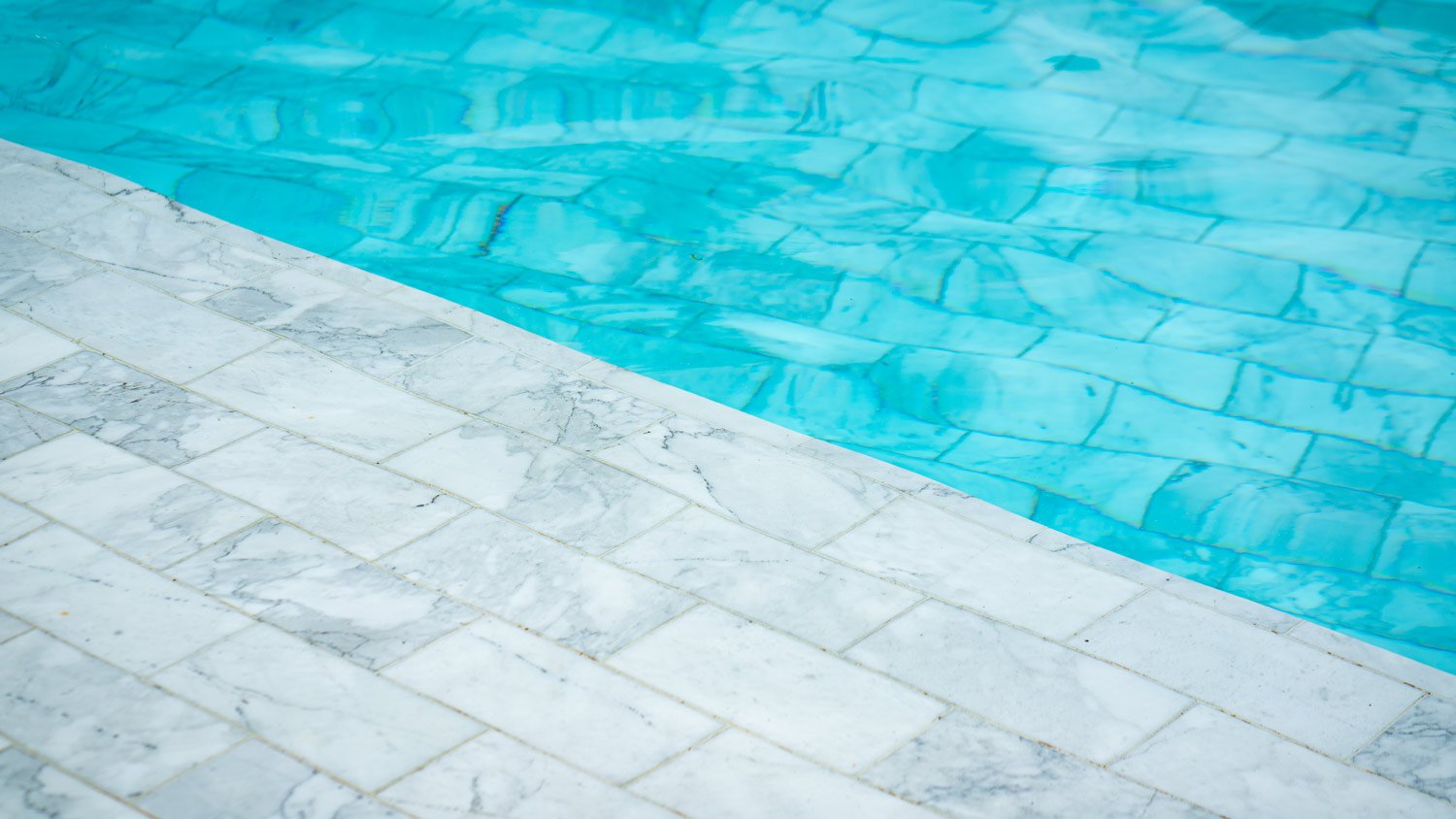
Polished aggregates are stone pool finishes that have been smoothed out to an even surface. Quartz and marble are common, as are sanded river pebbles. The cost of the pool finish will vary widely depending on the material and its availability in your area. In most cases, polished aggregate includes many high-end options that can heavily affect the style of your pool. Aggregates are also very durable, lasting up to 20 years.
| Pros | Cons |
|---|---|
| High-end appearance | Can be slippery |
| One of a kind | Higher cost |
| Range of options | Not DIY-friendly |
Best for: Durable and high-end appearance for up to two decades
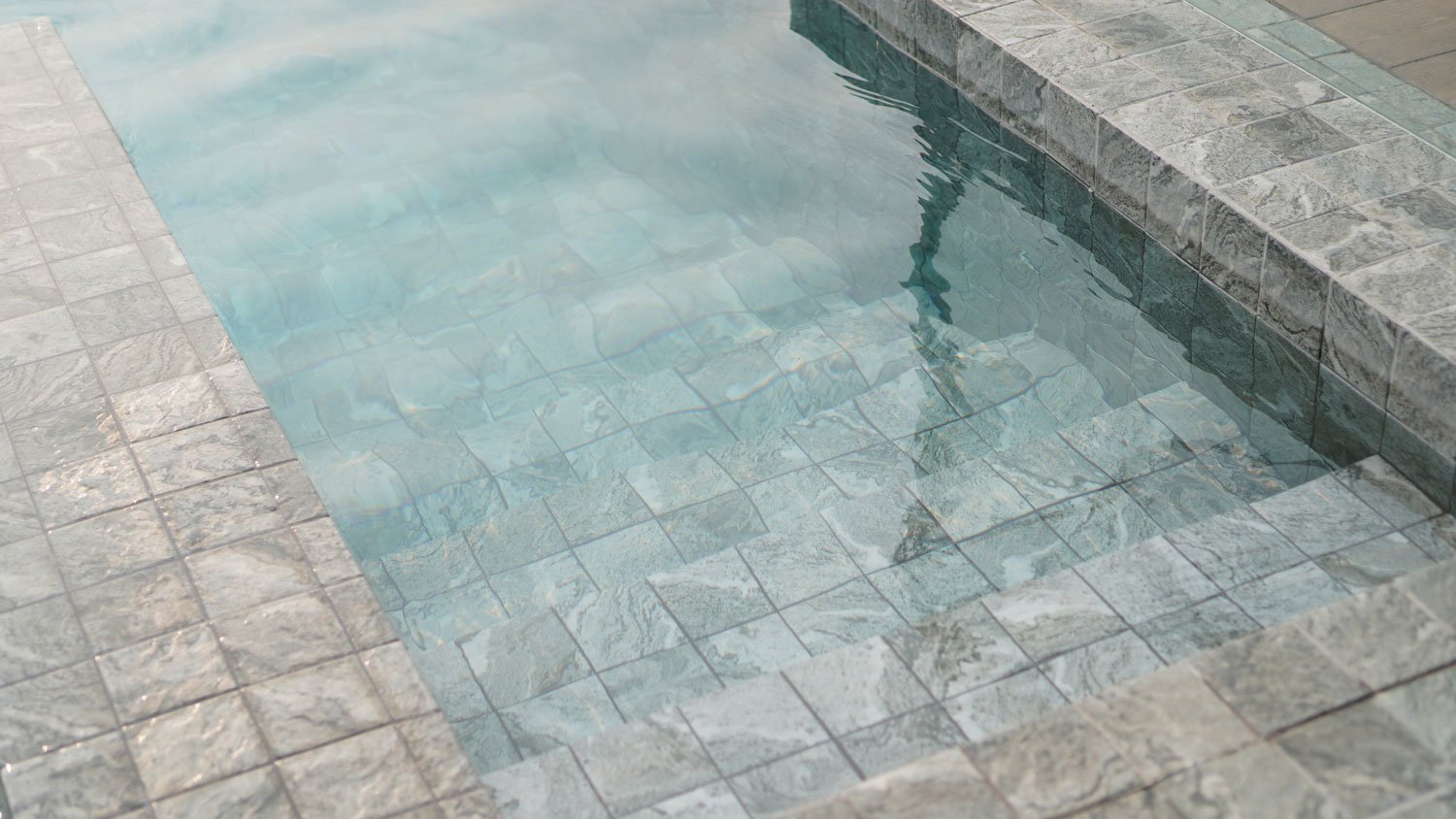
Getting into the many stone tile pool finishes and costs opens the door to natural stone. Whether you opt for marble, sandstone, slate, or one of the many other stone tile options, the addition is a no-brainer for a stylish pool. Natural stones can absorb and retain heat, and providing a natural source to warm your pool can cut down on the cost of your pool heater.
Designers can install stone tile in your pool in small, even squares or in a range of mosaics. Keep in mind that you will need a professional pool installer near you to ensure the stone tile is installed correctly and doesn't run the risk of leakage.
| Pros | Cons |
|---|---|
| Easy to replace tiles | Not DIY-friendly |
| Natural warming quality | Higher cost |
| High-end appearance | Lengthy installation |
Best for: Natural pools or pools in cooler climates
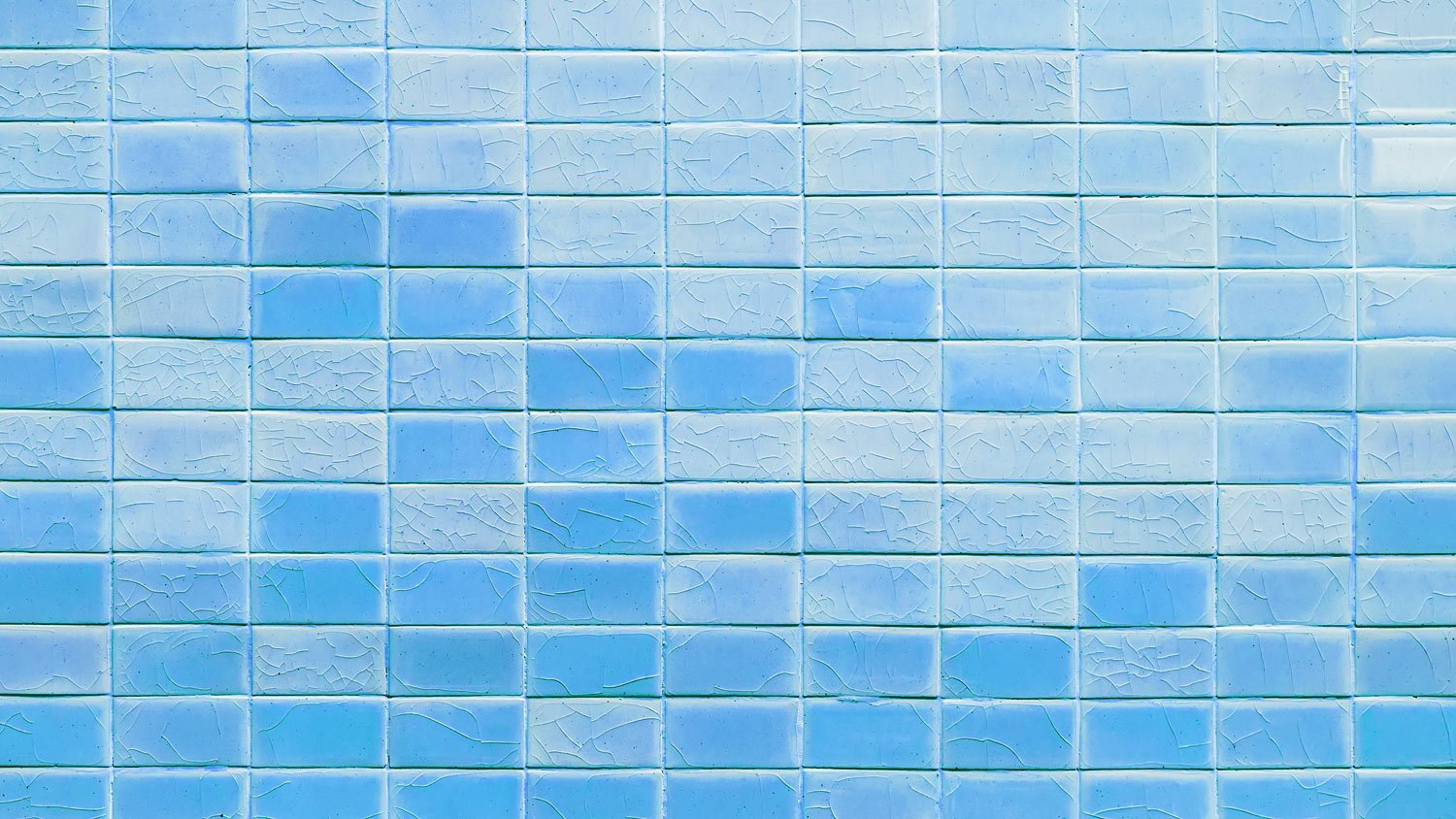
In the scheme of pool finishing tiles, ceramic can be a budget-friendly option with many of the perks of natural stone. The range of painted or natural hues not only customizes your pool, but the tiles also come in various mosaic shapes and designs.
Ceramic tile has a wide price range, costing anywhere from $1 to $35 per square foot. Hand-painted tiles fall on the higher end of the range, while tan, untreated tile costs far less. Perhaps best of all, ceramic tile is easy to replace and can last up to 50 years when well-maintained.
| Pros | Cons |
|---|---|
| Last up to 50 years | Lengthy installation |
| Cost range | Some costly options |
| Easy to paint | Less natural than stone |
Best for: Art deco and Southwest-style pools
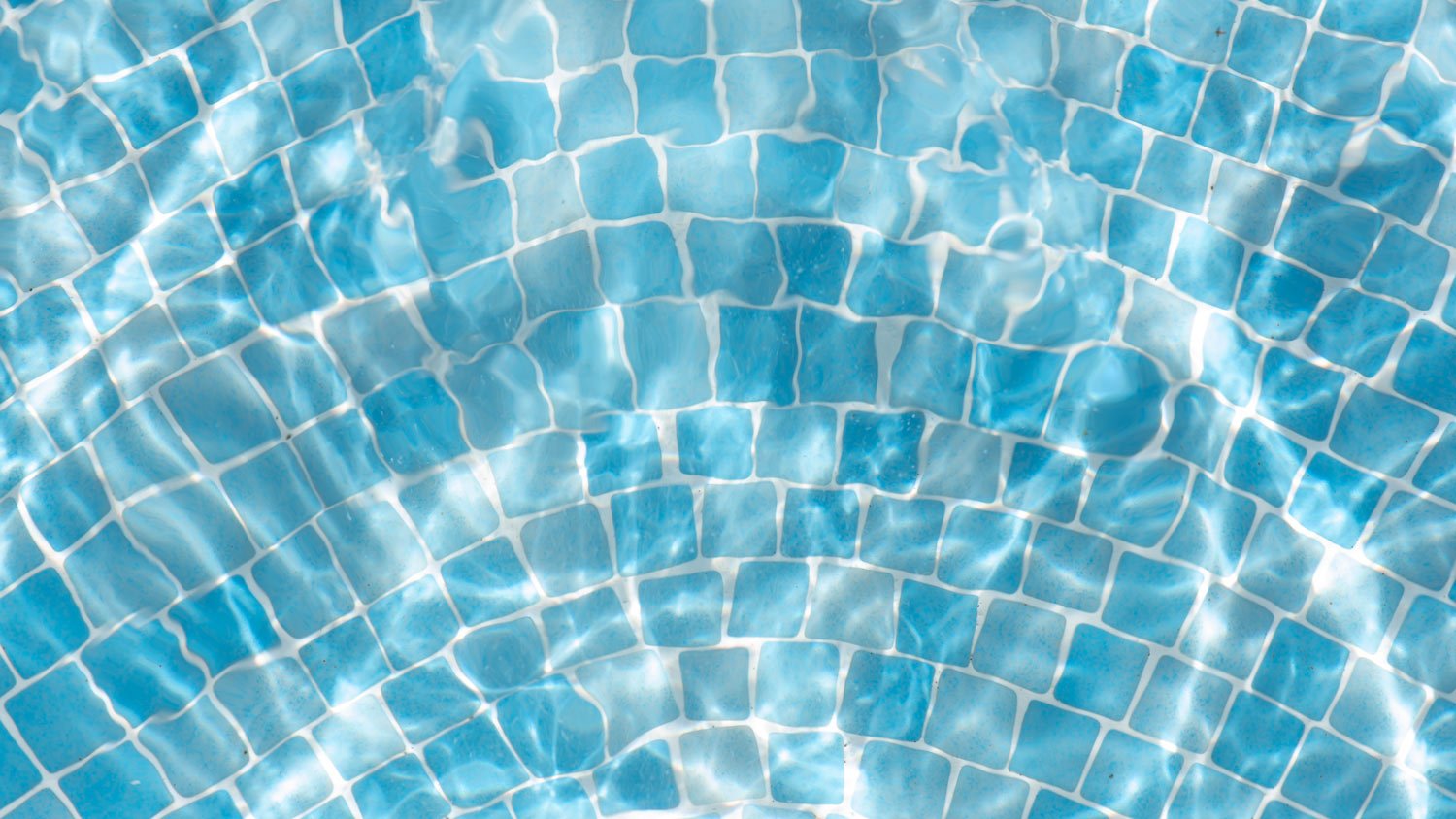
This option combines the glistening look of glass aggregate with the smooth mosaic of tile. Glass tile pool finishes can cost anywhere from $7 to $50 per square foot, incorporating a range of glass colors, tile shapes, and mosaic configurations. While it is not as durable and can be pretty tricky to replace, low-traffic pools or pool designers with a large budget can explore this snazzy option. Glass tiles also have endless design options. Many homeowners choose to add glass pool finishes to their walls or nearby fountains instead of the entirety of the pool surface.
| Pros | Cons |
|---|---|
| Elegant look | Expensive |
| Range of colors | Hard to repair |
| Ideal for mosaics | Can be slippery |
Best for: Pools that are used infrequently or to highlight a water feature
Choosing the right pool finish depends on the color you want the water to appear, the feel of the finish under your feet, and whether you want to enhance the pool with added sparkle. A local pool remodeling pro can help you select the right finish for your goals.
Because water doesn’t have a color, the color you choose for your pool finish will determine the appearance of the pool water. If you want to jump into a sparkling blue pool, go with a blue, white, or gray finish. If you want the water to appear green, choose a green, tan, or brown finish. You can choose a black pool finish if you want even darker water.
Choosing the water color you want will help narrow down the material for your pool finish. For instance, if you want a blue pool, you won’t be able to choose tan or brown stone tile because those finish colors will make the water look green. You’ll also need to factor in how you want the pool to feel. An epoxy or plaster finish will be smooth to the touch, while pebbles or stone tiles will have more texture.
Some finishes allow for added sparkle, which can enhance the appearance of the pool water. Some sparkle enhancers include abalone, mica, and mother of pearl, which can be mixed into certain pool finishes like concrete. You can also choose a pool finish, like glass beads, that will make the water sparkle.
From average costs to expert advice, get all the answers you need to get your job done.

How much does a pool cost per month in electricity? Pools use more energy than most home appliances, but you can invest in energy-efficient equipment to reduce costs.

Lap pools are a great option if you're more interested in exercising than hanging out on a floatie. Learn all about lap pool costs in this guide.

Need a new pool pump to boost performance and save on energy? Use this guide to budget for your pool pump costs.

Knowing how much salt to add to a pool will prepare it for use on a hot day. Use these calculations to keep your pool salt levels in the right spot.
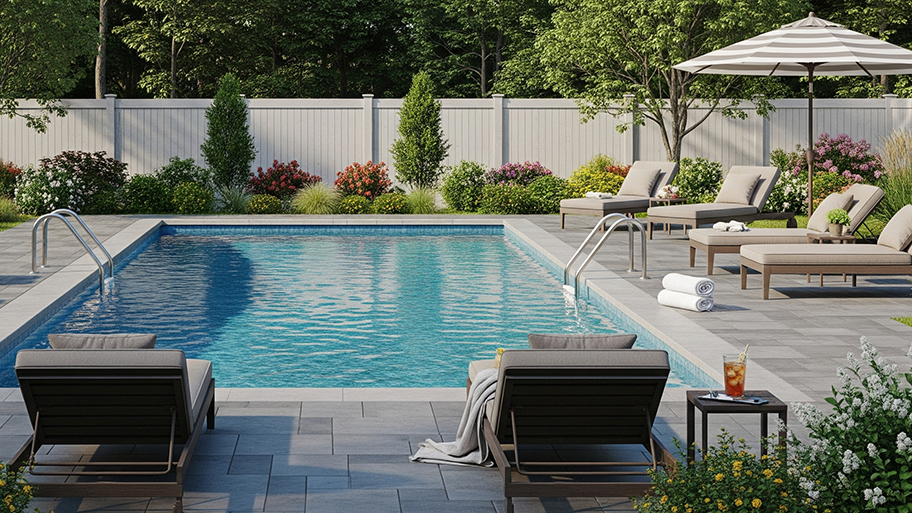
Everything was going swimmingly, but now your pool heater is not working properly. Here are some troubleshooting tips to get you back in business.

A broken pool light can be dangerous as well as inconvenient. Learn who to call to fix your pool light safely and correctly.